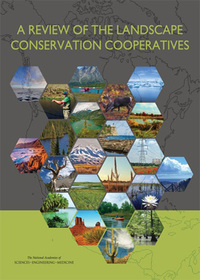
- University of Minnesota
- Director, Institute on the Environment
- Affiliation During NDIAS Fellowship: University of Notre Dame
- Residential Fellow (2011-2012)
- “Adapting to Climate Change: Managing Ecosystems in an Era of Human Culpability”
Jessica Hellmann is the director of the Institute on the Environment at the University of Minnesota. As director, she provides overall strategic leadership for the Institute, an internationally recognized organization working to solve grand environmental challenges, while promoting interdisciplinary research, teaching and leadership across the university and engaging external partners and stakeholders. She is also the Russell M. and Elizabeth M. Bennett Chair in Excellence in the Department of Ecology, Evolution and Behavior in the College of Biological Sciences.
Hellmann’s research focuses on global change ecology and climate adaptation. She was among the first to propose and study ways to reduce the impact of climate change through new techniques in conservation management. Hellmann led an important paradigm shift in ecology and natural resource management by showing that adaptation — living with climate change — is just as crucial to the future of humanity and Earth’s ecosystems as slowing and stopping greenhouse gas emissions. Her research and that of her students also has shown that differences in the way populations respond to climate change are key to predicting and managing their future.
Before coming to the University of Minnesota in 2015, Hellmann was on the faculty at the University of Notre Dame in the Department of Biological Sciences. She also served as research director of the Notre Dame Global Adaptation Index, which assesses and ranks the vulnerability of nations around the world to climate change and their readiness to adapt to climate change. She continues to collaborate with ND-GAIN as a core research member, mentoring several ND-GAIN researchers based at the University of Minnesota and elsewhere around the country. In addition, she led the climate change adaptation program at Notre Dame’s Environmental Change Initiative and directed GLOBES, an interdisciplinary graduate training program in environment and society, among numerous other high-level academic and scientific responsibilities. She also founded Notre Dame’s undergraduate minor in sustainability.
Hellmann is a frequent contributor to leading scientific journals such as Proceedings of the National Academies of Science, Frontiers in Ecology and the Environment, BioScience and PLOS ONE. She serves on the editorial board of the journal Evolutionary Applications, is an associate editor with both Conservation Biology and Elementa, and serves on committees for the Ecological Society of America, the College Board and the National Academy of Sciences.
Publications
-
A Review of the Landscape Conservation Cooperatives
The National Academies Press, 2016

The United States’ tradition of conserving fish, wildlife, habitats, and cultural resources dates to the mid-19th century. States have long sought to manage fish and wildlife species within their borders, whereas many early federal conservation efforts focused on setting aside specific places as parks, sanctuaries, or reserves. With advances in landscape ecology over the past quarter-century, conservation planners, scientists, and practitioners began to stress the importance of conservation efforts at the scale of landscapes and seascapes. These larger areas were thought to harbor relatively large numbers of species that are likely to maintain population viability and sustain ecological processes and natural disturbance regimes - often considered critical factors in conserving biodiversity.